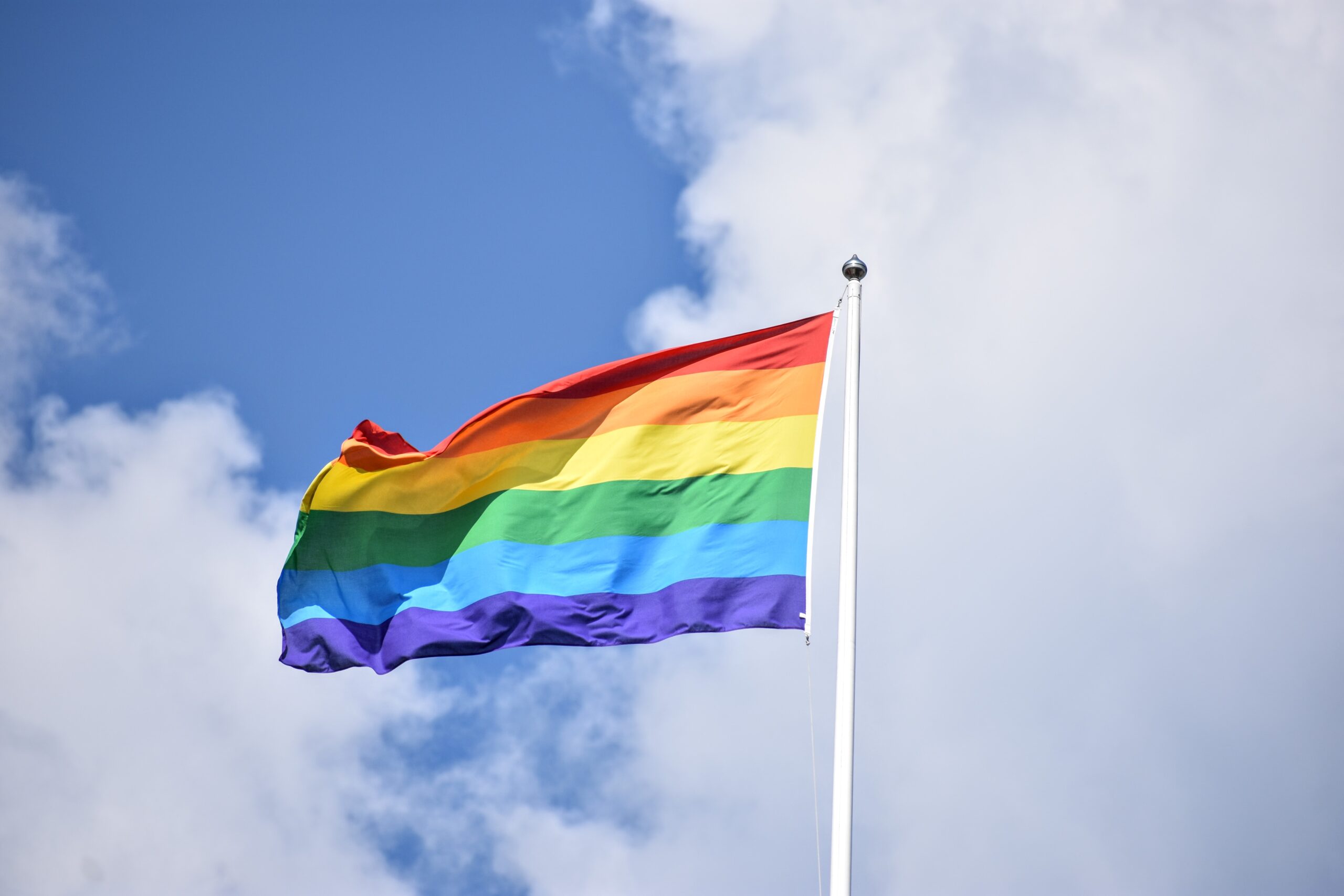Why Do We Celebrate LGBTQ Pride Month
Happy LGBTQ Pride Month! Pride Month is a time to celebrate LGBTQ community (Lesbian, Gay, Bisexual, Transgender, and Queer). It is a time to embrace who each of us are! Many people may wonder why we even have Pride Month Celebrations? You may hear people say things like:
- Why do we celebrate pride month?
- Why should the LGBTQ+ community get a whole month of celebration while _______ doesn’t have a month?
- Stonewall was so long ago! Why do we still have to talk about it?
These questions have answers that we will cover in this article! First, we will explore more about the history of this month and the LGBTQ+ community.
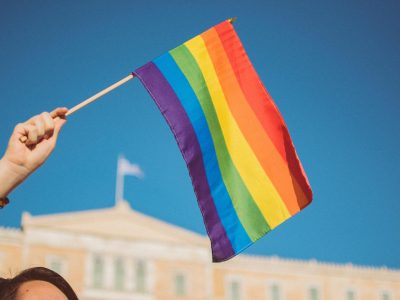
The Struggles of LGBTQ+ People
Living in the world as an LGBTQ+ person was not easy. People feared the law and were persecuted for crimes that should have never been considered crimes! If it wasn’t the stress they felt over being in trouble with the law, people also feared the total rejection from their social support systems. Even worse, LGBTQ+ people had to worry about hate crimes and discrimination if they ever chose to be themselves openly or if they were caught doing so by the wrong crowd.
If people didn’t live in fear, they lived in silence. Gay people had to live in silence, hiding who they truly were: they would describe it as being “in the closet,” “living a double life,” or “wearing a mask and taking it off.” Unfortunately, living a “silent” life wasn’t enough to keep people safe from discrimination. As Audre Lorde, a famous writer and activist, once said, “My silences had not protected me. Your silence will not protect you.”
What Happened at Stonewall?
The Stonewall Riot happened in 1969. The Stonewall Inn was a popular bar that many LGBTQ+ people went to. Police constantly raided this bar; patrons faced the fear of harassment, being arrested, and outed to their families or workplaces. Even in a bar that was supposed to be a place where LGBTQ+ people could meet up in a community, there was really no such thing as a safe space for gay people.
The Stonewall riots began on June 28, 1969 and is the reason we have Pride Month Celebrations. That night, police started to raid the bar, and the people had enough! There are debates over “who threw the first brick” (or if it was even was a brick). The discussion on the specific details doesn’t change the night’s impact. People came together to fight back against the injustice that LGBTQ people had faced for far too long.
The Stonewall uprising led to many organizations like “the Gay Liberation Front, Human Rights Campaign, GLAAD (formerly Gay and Lesbian Alliance Against Defamation), and PFLAG (formerly Parents, Families and Friends of Lesbians and Gays).”
The Answers to Those Questions
Why Do We Celebrate Pride Month?
We have pride month celebrations to honor the Stonewall Riots and the people who fought for the rights LGBTQ+ people have today. This month also honors the start of the modern gay liberation movement. Pride Month Celebrations go hand-in-hand with gay rights!
Why should the LGBTQ+ community get a whole month of celebration while _______ doesn’t have a month?
Some people ask this question because they don’t like that LGBTQ+ people have a month of honor. This question and doubt over why they “deserve” a month invalidate the struggles of this community.
There are many months and holidays dedicated to different communities of people in America. June is an important month for the LGBTQ+ community, and it marks the start of change and liberation.
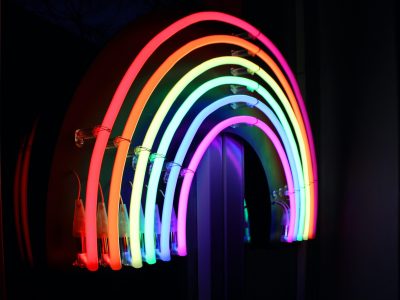
Stonewall was so long ago! Why do we still have to talk about it?
We still talk about Stonewall because all of the problems LGBTQ people faced in the 60s can still happen today. Also, many laws still endanger the rights of LGBTQ+ people. Here are just some of the examples to talk about:
“Don’t Say Gay” Law: In 2022, at least a dozen states are considering laws that aim to “prohibit schools from using a curriculum or discussing topics of gender identity or sexual orientation.”
Fight on Reproductive Healthcare and Same-Sex Marriage: In light of the recent fear of Roe v. Wade being overturned, people worry that same-sex marriage might be affected, as well. Marriage equality was only established seven years ago in the United States(June 26, 2015)! Also, if clinics start closing more, the reproductive healthcare of LGBTQ+ people is a risk in many ways dealing with contraception, IVF, hormones, and more.
Violence Towards the Transgender and Gender Non-Conforming Community: The HCR has reported record-high violence against trans and gender non-conforming people in the past few years. In 2021, 50 fatalities were reported, and in 2022 there are already 14 found. Violence is especially high toward black transgender women.
In 2022, people are still getting killed for being themselves, facing discriminatory laws, and trying to be silenced by those who disagree with their existence. We need to celebrate pride and talk about these issues because there is still more to accomplish as much progress as we think we have made. Pride will always be relevant!
Ways to Take a Part to Celebrate Pride Month
1. Learn about the Icons of LGBTQ+ History
One way to celebrate pride month is to learn about and honor LGBTQ+ history and icons. Here are a few icons that had pivotal roles in the stonewall uprising and gay liberation movement in America:
Marsha P. Johnson: According to the Office of LGBTQ+ Affairs in Union, New Jersey, Marsha P Johnson was a drag queen who was known for her kind heart and was always looking to help others, especially LGBTQ+ youth in need. Marsha is a legendary advocate for the LGBTQ+ community and was a prominent player in the stonewall uprising.
Sylvia Rivera: Sylvia Rivera was another major advocate for the LGBTQ+ community and a pioneer of the stonewall riots. According to the Sylvia Rivera Law Project, Sylvia “was a persistent voice for the rights of people of color and low-income queers and trans people.” Marsha and Sylvia created the Street Transvestite Action Revolutionaries (STAR), which helped homeless transgender youth.
Stormé DeLarverie: Storme was a singer. She was known for being a protector of the LGBTQ+ she came across and would always stand up against “ugliness” or injustice she witnessed. This description is fitting for someone who many credit for being the igniter of the Stonewall riots. Stormé was an activist and dedicated her life to fighting for her community’s rights.
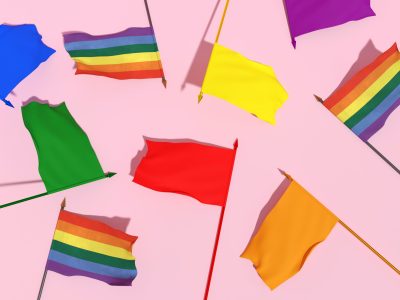
2. Go to a Parade
Pride is a time to celebrate with the LGBTQ+ community! Going to Pride Month Celebrations can be a great way to show your support. The first Gay Pride March took place on June 27, 1970, one year after the Stonewall uprising. People bravely took to the streets and protested for LGBTQ+ rights. Today, people still march and come together to have their voices heard. People celebrate by wearing colors of the rainbow, waving their flags, and honoring their history.
3. Be an Ally
If you are not part of the LGBTQ+ community, you can still celebrate by being an ally. An ally is someone who is not part of a community but supports and uplifts the people in it. You can be an ally to the LGBTQ+people in your life by supporting, standing up for, and standing with them.
Allies dedicate themselves to fighting for the rights of LGBTQ+ people and not settling for the discrimination or harassment they see. This month as an ally, go to a pride parade, learn about LGBTQ+ history, educate those around you, and show your support for the community.
4. Help Educate Others
As mentioned before, helping to educate others is an essential step in spreading awareness for the LGBTQ+ community. You can inform others of important LGBTQ+ topics. You can talk about the prevalent issues for LGBTQ+ people before or these other topics, as well:
LGBTQ+ Youth Homelessness: According to the Office of Children and Family Services, LGBTQ youth make up 40% of the homeless youth population in America. The Trevor Project reports that in 2021 only 1 in 3 LGBTQ+ youth felt affirmed in their own homes.
LGBTQ+ Transgender and Gender Non-Conforming Youth: The Trevor Project’s report from 2021 stated that “42% of LGBTQ youth reported feeling suicidal (more than half of transgender and nonbinary youth).” However, this report also pointed out that when LGBTQ+ youth were affirmed, could change their legal documents, and had safe spaces faced lower suicide rates.
Help educate people by sharing this information. Many people who have LGBTQ+ friends or family in their lives don’t realize the importance of their social support – it can even be life-saving. Social Support is the help and care someone receives from others. Social support comes in handy in moments where we feel lost, afraid, and anxious in life. When we have people who help us deal/cope with our emotions better, we feel less alone. With the struggles LGBTQ+ face today, this social support is needed!
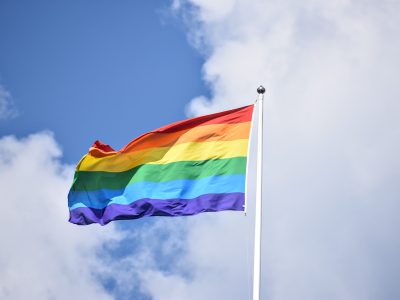
Mind Connections Celebrates Pride
Mind Connections wishes you a Happy Pride Month! We provide gender affirmative cognitive behavior therapy for LGBTQ+ individuals and couples. If you struggle with harassment, hatred, related stress, anxiety, depression, or any other mental health challenge, we are here to provide LGBTQ friendly therapy! Call us free for 15 minutes to discuss your concerns and seek pride counseling.
Contact us for a free 15-minute phone call to find the best match for you.
Content Creator, Victoria Gallo; Reviewed by Dr. June Cao

